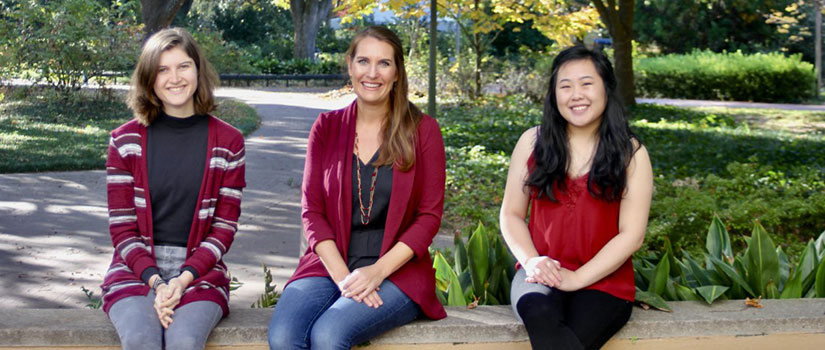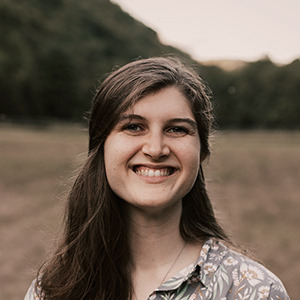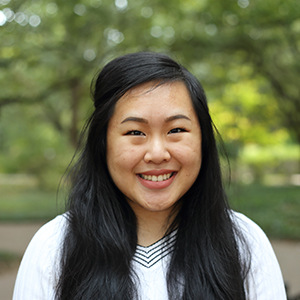For Sarah Grace Frary, it was something spoken of in whispers at her high school.
She heard about the parties where high school kids would slip pills to each other from prescriptions they found in their parents’ medicine cabinets.
Growing up in the Appalachian region of Virginia, Frary saw the effects of the over-prescribing and misuse of opioids her community, which was hit especially hard by the opioid epidemic.
“There are records indicating that when Purdue Pharma was launching OxyContin, they were targeting places that have a high history of chronic pain due to occupation,” Frary says.
“In the areas of eastern Kentucky, southwest Virginia and West Virginia, that’s the legacy of coal mining.”
A third-year doctoral student in clinical community psychology at USC, Frary is learning about the roots of this national epidemic – and how to help those affected by it – through a new fellowship program in the psychology department in the college of arts and sciences.
A national and statewide crisis
Psychology professor Sayward Harrison obtained a $1.3 million grant from the Health Resources and Services Administration (HRSA) to create the Supporting Substance Use Disorder Services in South Carolina center at USC, which is designed to address the critical shortage of psychologists trained to prevent and treat opioid addiction and substance use disorders.
“HRSA has a strong history of supporting psychology departments around the United States and ensuring that we are going to have well trained mental health professionals to address our nation’s needs,” Harrison says.
Harrison says substance misuse – and opioid addiction, specifically – has worsened
significantly in South Carolina in recent years, making the center an important addition
to the state’s response to the epidemic.
“In 2020 alone, 1734 individuals in the state died due to an overdose. More than four
out of five of those deaths were caused by opioids, such as OxyContin, heroin and
fentanyl,” she says.
Greenville and Richland County lead the state in overdose deaths from fentanyl, a synthetic opioid that is significantly more potent than heroin. Harrison says these counties are also hubs for treatment and addiction services, and she hopes the HRSA grant will help bring services to rural areas as well.
As director of the center, Harrison is working with faculty members from the psychology department and from USC’s Columbia and Greenville medical schools to partner with Prisma Health and other frontline agencies working to combat the opioid epidemic.
Together they’re placing six advanced psychology doctoral students at externship sites throughout the state to gain valuable hands-on experience in substance use disorder services.
For example, Frary will work at Prisma’s immunology center in Richland County, logging hours in both patient care and in clinical research.
“Growing up in Appalachia, I saw how the epidemic played out in that community,” Frary says. “By learning how the problem is the same or different in South Carolina, we’ll be able to learn how to help other communities respond to their unique needs.”
A problem for anyone, anywhere
The opioid crisis also hits close to home for fourth-year doctoral student Wendy Chu. She grew up in San Francisco and saw family members deal with addiction in different forms.
“Addiction doesn’t necessarily look the way people would expect,” she says. “Seeing it first-hand just gives me a different perspective that truly anyone could be affected by addiction.”
Chu studies the mental health needs of children and adolescents and will work at Prisma’s Children’s Hospital for her externship. Her research focuses on how to get patients and families to engage with treatment and services available to them, which will help ensure that those affected by addiction have more positive experiences in care.
“Individuals who are misusing substances may be reluctant to engage in services or may face barriers to accessing services,” Chu says. “My research helps me consider all the different things that can prevent someone from being able to get effective treatment.”
While people may not be willing to seek help, Chu says another problem is not having enough services available in the first place, which this fellowship – and the larger initiative by HRSA – will help to address.
“Nationally, there’s a huge unmet need for psychologists who have training in substance use disorder services, and our current psychologist training model isn’t structured right now to provide that,” Chu says.
Harrison says the center and fellowship program will be a start to close that gap at USC.
“We want to get more Ph.D. level psychologists out in the field working on this issue,” Harrison says. “Psychologists are really well placed both to be able to support people in their recovery as well as to help them address the other factors that are often contributing to addiction.”
As the externships begin later this fall, the fellows have started their training with readings, discussions and speakers who share their knowledge and expertise from years for working in substance misuse prevention and treatment in South Carolina communities.
“We saw a great talk on campus by Gamecock Recovery, and students right here at USC shared how they found the support, services and community to overcome addiction,” Harrison says.
“Each person’s path to recovery might look different. Wherever somebody is on that journey, we want to meet them where they are and help support them.”


